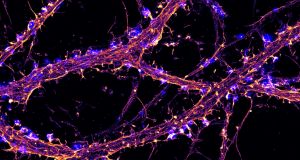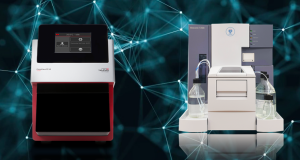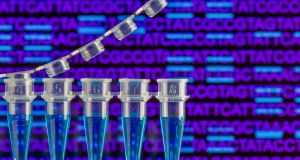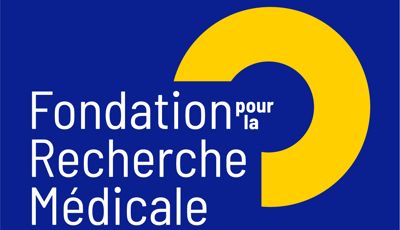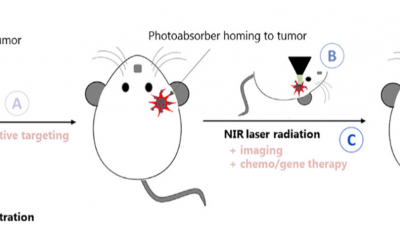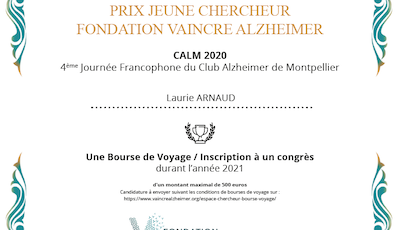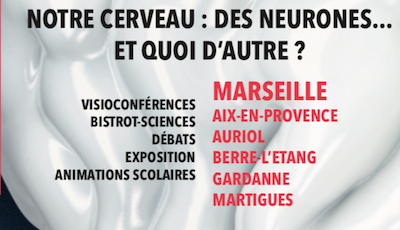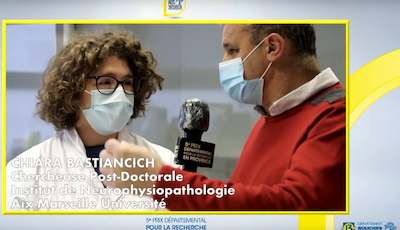Teams
NeuroTimone Facility (PFNT)
The PFNT Facility is a coherent set of exploration tools in neurobiology allowing research at the molecular, cellular and integrated levels.
News
-
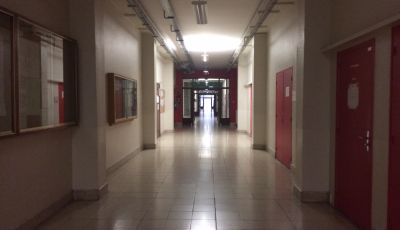 L'INP suspend ses activités sur le campus Timone
L'INP suspend ses activités sur le campus TimoneSuite au discours du président de la République et conformément à ce qui avait été préparé dans le cadre du Plan de Continuité des Activités Pédagogiques, Administratives et de Recherche d'Aix Marseille Université et du CNRS, l'ensemble du personnel de l'INP continuera a travailler de chez soi à compter de ce lundi 16 mars 2020.
-
 Semaine du Cerveau : Causerie de Michel Khrestchatisky (INP) sur le Campus de la Timone
Semaine du Cerveau : Causerie de Michel Khrestchatisky (INP) sur le Campus de la TimoneEn raison des mesures prises pour freiner l'épidémie COVID-19, cette causerie est bien évidemment annulée ...
-
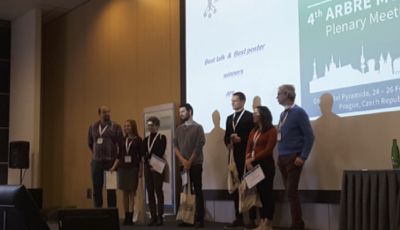 Romain La Rocca won best poster prize at ARBRE-MOBIEU 4th plenary meeting in Prague
Romain La Rocca won best poster prize at ARBRE-MOBIEU 4th plenary meeting in PragueRomain La Rocca, third year PhD student in INP team 9 (Cytoskeleton and Neurophysiopathology), recently won the the best poster prize at the 4th ARBRE-MOBIEU pleanry meeting in Prague on February 24, 25 and 26.
ARBRE MOBIEU pleanry meeting is a European Biophysics Congress that brings together many researchers in Europe from various fields, all of whom have in common the use of biophysical tools. On this occasion, Romain presented his thesis work on the effects of zinc on the Tau protein using NMR, ITC, DLS among other biophysical techniques.
-
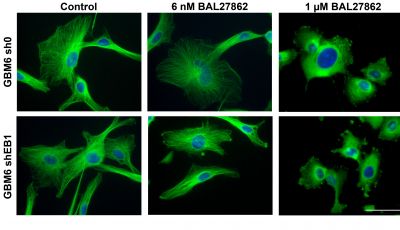 The GlioME team published a new article in Oncotarget journal: EB1-dependent long survival of glioblastoma-grafted mice with the oral tubulin-binder BAL101553 is associated with inhibition of tumor angiogenesis.
The GlioME team published a new article in Oncotarget journal: EB1-dependent long survival of glioblastoma-grafted mice with the oral tubulin-binder BAL101553 is associated with inhibition of tumor angiogenesis.Our study shows that a treatment with the microtubule-destabilizing agent BAL101553 counteracts tumor angiogenesis by acting on glioblastoma stem-like cells, in an EB1-dependent manner. This work provides new insights into the therapeutic targeting of cancer stem-like cells.
-
 CNRS - Amélioration de la Qualité de Vie au Travail
CNRS - Amélioration de la Qualité de Vie au TravailAu printemps 2019, le CNRS a lancé un appel à projets, pour la 3e année consécutive, dans l’optique de l’amélioration de la Qualité de Vie au Travail (QVT)...
-
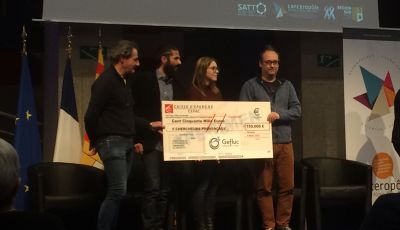 Philipp Tsvetkov received a 29 000 € grant from the GEFLUC
Philipp Tsvetkov received a 29 000 € grant from the GEFLUC- The Emergence project entitled “New high throughput screening method for anticancer agents” carried out by Philipp Tsvetkov (first from the right) was selected by the Canceropole PACA to be funded by the GEFLUC (groupement des entreprises françaises dans la lutte contre le cancer).
-
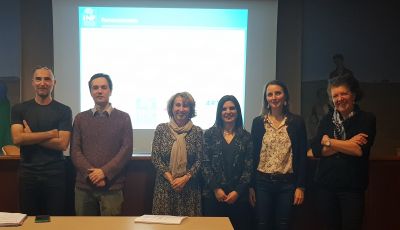 Aurélie Tchoghandjian, jeune chercheur dans l'équipe GlioME a brillament obtenu son Habilitation à Diriger les Recherches (HDR)
Aurélie Tchoghandjian, jeune chercheur dans l'équipe GlioME a brillament obtenu son Habilitation à Diriger les Recherches (HDR)Aurélie Tchoghandjian a soutenu son Habilitation à Diriger les Recherches (HDR) devant un jury d'experts composé de cliniciens : Pr. Nicolas André, Pr. François Ducray, Pr. Dominique Figarella-Branger; et de chercheurs : Dr. Emmanuelle Huillard et Dr. Monique Dontenwill.
-
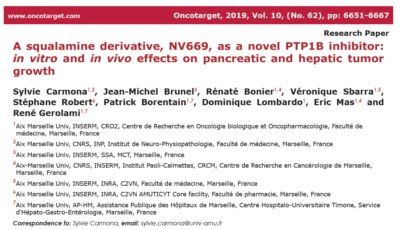 New publication from Sylvie Carmona (Neuro-inflammation and Multiple Sclerosis team - INP team 5)
New publication from Sylvie Carmona (Neuro-inflammation and Multiple Sclerosis team - INP team 5)As part of her PhD, Sylvie Carmona investigated the beneficial effects of NV669, an aminosterol derived from squalamine on human pancreatic and hepatic cancer models. In vitro results exposed in this paper showed that NV669 inhibited the proliferation of cancer cells, induced cell cycle arrest and subsequent apoptosis. Moreover, NV669 inhibited PTP1B activity and impacted adhesion molecules expression. This suggests that NV669 by inhibiting PTP1B would affect cell contacts and would induce apoptosis.
Pages
INP in numbers
- 126 members
- 44 researchers
- 48 research assistants
- 12 post-docs
- 11 PhD
INP first video abstract ?
A couple weeks after the release of article "An AI-Powered Blood Test to Detect Cancer Using NanoDSF" authored by Tsvetkov Philipp*, Eyraud Rémi*, Ayache Stéphane, Bougaev Anton, Malesinski Soazig, Benazha Hamed, Gorokhova Svetlana, Buffat Christophe, Dehais Caroline, Sanson Marc, Bielle Franck, Figarella Branger Dominique, Chinot Olivier, Tabouret Emeline* and Devred François* in Cancers, the two first and two last authors of this interdisciplinary study participated in their first video abstract.
FRM Équipe 2021 to the NeuroCyto team
The NeuroCyto team was awarded an “Équipe” grant from the Fondation pour la Recherche Médicale. With more than 400,000 euros over three years, it will allow the team to investigate the organization and role of actin at presynapses using advanced micromanipulation and cutting edge super-resolution microscopy.
Laurie Arnaud from Team 1&6 has won the "Young Researcher Prize" for her poster presentation at the 4th edition of CALM 2020, organized by the Club Alzheimer de Montpellier
We are proud to announce that Laurie Arnaud, the third year PhD student in INP's Teams 1 and 6 (Neural Plasticity and Degeneration & Stem cells, Disease modeling and Neuroregeneration), recently won the Best Poster presentation prize at CALM 2020, the 4th edition, organized by the Club Alzheimer de Montpellier on the 17 and 18 of November 2020. She presented her work intitulated "Regulation of astrocyte inflammation by Apolipoprotein E (APOE): demonstration of an NF-kB-dependent mechanism mediated by a newly identified partner".
Semaine du cerveau 2021 : Notre cerveau : des neurones… et quoi d’autre ?
La 22ème édition de la « Semaine du Cerveau » s’adapte à la pandémie ! Plusieurs chercheurs de l’INP (Caroline Strube, Olivier Bosler et Anne-Marie François-Bellan) membres de l’association « cerveau point comm » participent à l’organisation au niveau régional de la Semaine du Cerveau, une manifestation internationale grand public coordonnée en France par la Société des Neurosciences.















